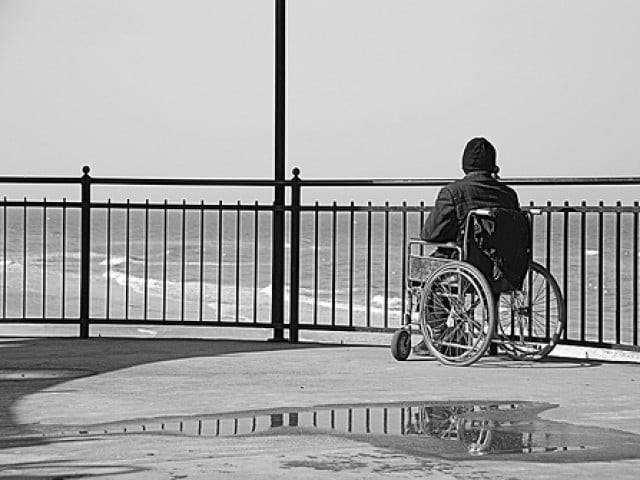Discussing disabilities: ‘Don’t mend us, mend society’
Heads of group assisting disabled persons discuss challenges for the disabled.

Disabled persons should not be treated as special people, but rather as a linguistic minority, as is being practiced in developed countries.
“We need an inclusive education system with minor changes in the infrastructure. All buildings need to be accessible to special persons and need ramps and lifts to accommodate them,” said Talent Exchange Programme (STEP) Project Manager Ali Shabar. STEP, founded in 1997, was the first organisation founded by disabled persons.
Ali and his friend and founding member Atif Sheikh, who is the Chief Executive Officer of STEP, are both disabled persons and work for the welfare of other special persons after quitting very lucrative jobs in multinational organisations. Both are British Chevening Scholarship alumni.
During a conversation on International Day of Persons with Disabilities, Ali Shabbar said, “Even if we lack in one part of our body, we still have many qualities. There is no need to mend us, but rather there is a need to mend the society.”
He said that there is no national policy on disabilities and no seats are reserved in the Parliament for disabled persons. “If disabled persons are not to be made beggars, they should be made self-sufficient, for which there is a need for a comprehensive national policy,” he added.
He said that disability itself is not an issue, but “we face issues with housing, building, information technology, and road signs, due to lack of planning in view of our needs”.
“We don’t have access to the parliament building or the Supreme Court building. Disabled persons do not have access to websites so they may read or listen to the information and news,” he said.
These issues, he said, only prevail in Muslim countries, saying that even the Kaaba is inaccessible for disabled persons. He said that there is discrimination against disabled persons in all developing countries, adding that there are not even interpreters for them in hospitals, schools, police stations and other such places of civic services.
Ali said that there are only 119 education centres for disabled persons across the country, with only 4,322 students, yet the government has recruited 6,050 teachers on political grounds. He questioned how 119 education centres would cater to 18 million persons of school-going age in the country. The UN reports that there are over 32 million disabled persons in Pakistan.
Atif Sheikh said that the curriculum for disabled persons in the country is substandard and needs to be revised. “The curriculum should be brought at the standard of normal people to bring their level of aptitude and thinking to the same level,” Atif said. He also advocated abolishing quotas specified for disabled persons and introducing a rights-based approach. “There should be equal opportunity and equal facilities in all government departments,” he maintained.
Another challenges he said, is that there are mobility challenges to disabled person in the country, as people think that we should live at home at the mercy of other people.
Published in The Express Tribune, December 3rd, 2011.



















COMMENTS
Comments are moderated and generally will be posted if they are on-topic and not abusive.
For more information, please see our Comments FAQ